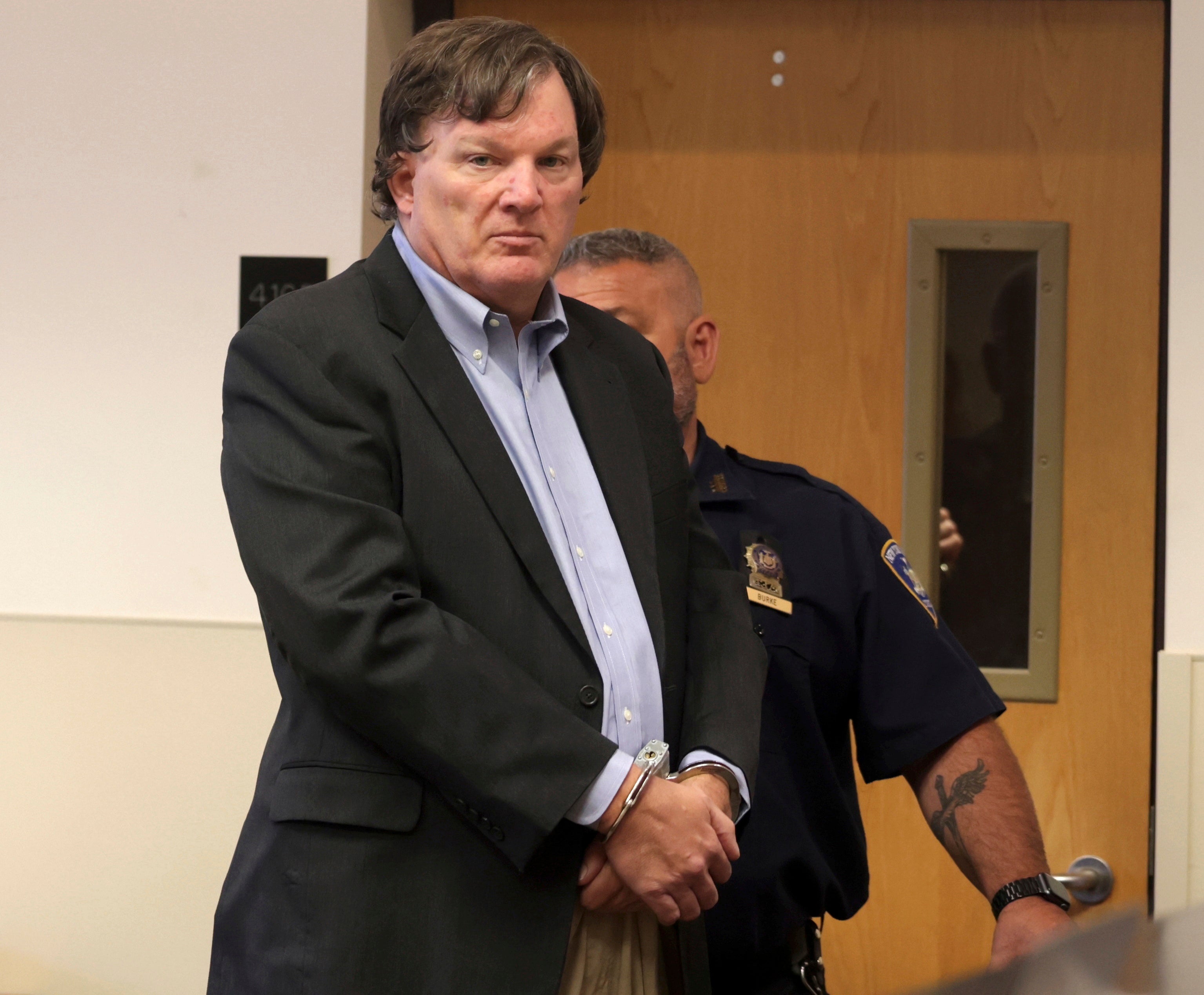Rex Heuermann’s defence buried in mountain of evidence as he faces court in Gilgo Beach murders case
Mr Heuermann appeared in court on Tuesday for the first time since his arraignment
Attorneys for accused Gilgo Beach serial killer Rex Heuermann have received a massive amount of evidence to review from the prosecution.
Mr Heuermann, the Manhattan architect accused of murdering at least three women and dumping their bodies along a remote stretch of shore in the Long Island community of Gilgo Beach, appeared in court on Tuesday for the first time since his arraignment.
Mr Heuermann is charged with killing Melissa Barthelemy, Megan Waterman and Amber Lynn Costello, who disappeared in 2009 and 2010. Prosecutors say he’s also the main suspect in the death of a fourth woman, Maureen Brainard-Barnes, who vanished in 2007.
No cameras were allowed during the hearing and Mr Huermann was brought inside the Arthur M Cromarty Criminal Court Complex through an underground tunnel from the jail across the street, according to WSAZ. Suffolk County District Attorney Raymond Tierney told media outside the courthouse in Riverhead that his team had handed eight terabytes of evidence to the defence.
“We’re talking about a 13-year-old case so we’re talking about a massive amount of material, and don’t forget it is continuing, because the investigation is continuing,” Mr Tierny told reporters. “It had to be done in a way that made sense to us but also to the defence ... and we were able to catalogue everything that we provided.”
Mr Tierney dodged questions about a trial or potential plea deal, saying that the prosecution would allow the case to play out. The DA added that the secret grand jury process is still ongoing and that more charges may loom ahead if new evidence emerges.
According to a criminal complaint last month, the evidence linking Mr Heuermann to the crimes included cellphone records, chilling online searches for disturbing topics, DNA found at the crime scenes and key witness testimony that placed him at the home of one of the victims shortly before she went missing.
Since then, Mr Tierney said police had found a “tremendous amount of information” while they searched his home in Massapequa Park.

The search turned up at least 279 weapons kept inside a thick basement vault large enough for a person to walk into, Mr Tierney said. Law enforcement took boxes of additional evidence from the “very cluttered” house, but efforts to dig up the backyard in search of possible clues about where the murders were committed did not yield any large items of evidence.
All of the material recovered from the house will be tested for DNA and blood samples that may be relevant to the case.
Mr Heuermann’s attorney Michael Brown also told reporters that this was the first time he is given information regarding the case. Mr Brown said he had “not seen one ounce of evidence” before receiving five hard drives from prosecutors on Tuesday.
“The government makes allegations all the time. Sometimes they’re true, sometimes they’re not. All I can tell you is, he needs to get the presumption of innocence,” the attorney said.
Some of the material includes images of the women’s remains, according to local news station WSAZ. The defence and prosecutors have reached a confidentiality agreement that bans them from sharing those materials with the public.
Mr Heuermann is expected to appear in court for his next hearing on 27 September.




